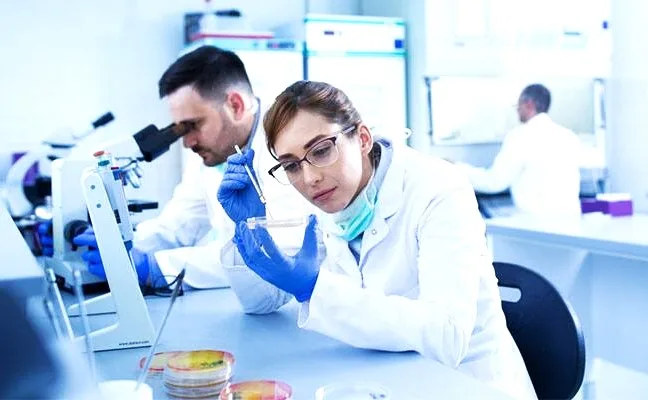Scientists Reverse Aging by Rebooting Cells: Revolutionizing Times ahead!
Scientists have made a tremendous scientific advancement that may help us overcome the inevitable aging process. With the use of a ground-breaking method, scientists have recently discovered a way to reverse aging process in cells, offering hope that the myth of the fountain of youth may one day be dispelled. This amazing discovery entails turning on a backup copy of the epigenetic instructions in cells by rebooting them, thereby removing faulty signals that cause cells to age irreversibly.

Unlocking the Secrets of Age Reversal:
The key to this groundbreaking research lies in manipulating the epigenome, the complex set of chemical modifications that control gene expression. Scientists successfully developed a method to restart the backup copy of epigenetic instructions within cells, essentially rejuvenating them and resetting the aging process. This innovative approach offers a promising solution to the age-old quest for slowing down or even halting the aging process.
Mimicking Aging Effects on the Epigenome:
To understand the intricacies of aging and its impact on the epigenome, scientists conducted experiments on young mice. By introducing breaks in the DNA of these mice, researchers were able to mimic the effects of aging on the epigenome. This groundbreaking technique not only provided invaluable insights into the aging process but also paved the way for the development of targeted interventions to reverse its effects.
The Corrupted Signals of Aging:
Aging is often associated with the accumulation of epigenetic changes, leading to corrupted signals that cause cells to malfunction and lose their youthful vigor. The research team successfully identified and eradicated these corrupted signals, providing a reset button for aging cells. This newfound ability to intervene at the epigenetic level could potentially transform the landscape of anti-aging therapies.
Hope for Human Longevity:
While the experiments have primarily been conducted on mice, the implications for human longevity are profound. The discovery opens up new avenues for research and development of therapies that could one day be applied to humans. Imagine a future where the aging process could be reversed, allowing individuals to enjoy prolonged health and vitality.
In the fight for a longer, healthier life, the discovery that scientists can reverse aging by rebooting cells and resetting epigenetic instructions represents a significant advancement. Although there is still a long way to go before these findings are applied to people, the implications of this research are truly revolutionary. With the potential to reverse the aging process, growing old gracefully may become a thing of the past, opening up new avenues for the field of medicine. The idea of living forever becomes more and more plausible as scientists learn more about the intricacies of aging.
References:
Sinclair, D. A., & LaPlante, M. D. (2020). Lifespan: Why We Age—and Why We Don’t Have To. Atria Books.
Campisi, J., Kapahi, P., Lithgow, G. J., Melov, S., Newman, J. C., & Verdin, E. (2019). From discoveries in ageing research to therapeutics for healthy ageing. Nature, 571(7764), 183-192.
Fontana, L., Partridge, L., & Longo, V. D. (2010). Extending healthy life span—from yeast to humans. Science, 328(5976), 321-326.
de Keizer, P. L. (2017). The fountain of youth by targeting senescent cells? Trends in Molecular Medicine, 23(1), 6-17.
Harman, D. (1956). Aging: A theory based on free radical and radiation chemistry. Journal of gerontology, 11(3), 298-300.

Great write-up, I’m regular visitor of one’s site, maintain up the excellent operate, and It is going to be a regular visitor for a lengthy time.
You can definitely see your enthusiasm within the work you write. The arena hopes for even more passionate writers such as you who are not afraid to say how they believe. Always go after your heart. “Billy Almon has all of his inlaw and outlaws here this afternoon.” by Jerry Coleman.
Nice post. I was checking continuously this blog and I’m impressed! Very helpful info particularly the last part 🙂 I care for such info a lot. I was seeking this certain information for a very long time. Thank you and best of luck.
Hey! I could have sworn I’ve been to this website before but after checking through some of the post I realized it’s new to me. Anyhow, I’m definitely happy I found it and I’ll be bookmarking and checking back frequently!